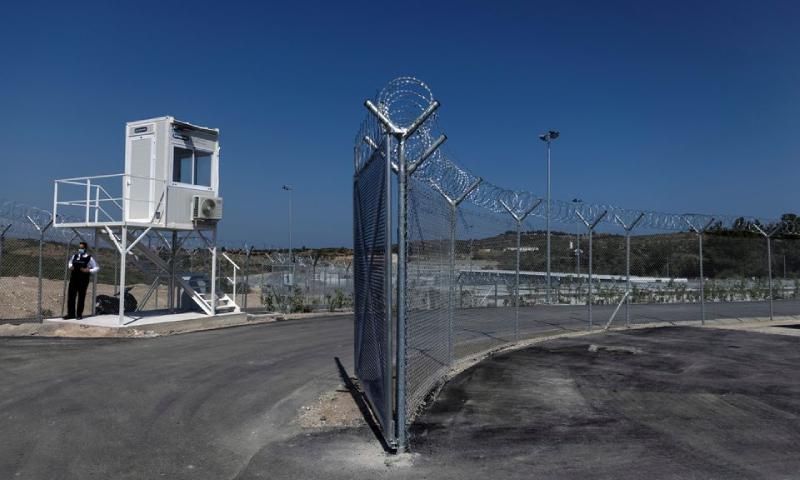
The Supreme Administrative Court of Greece canceled the permit to build a migrant center, which the government was planning to erect in the heart of the largest forest on the Aegean island of Lesbos, despite the rejection expressed by an important sector of the local population to establish the center.
Greece’s plans and hopes for a closed and controlled center for migrants on the island of Lesbos, near Turkey, were dashed after the country’s supreme administrative court (The Council of State) revoked the building permit at the proposed site.
According to the court’s decision, the permit to build the proposed camp in Vastria was revoked “for lack of an adequate environmental study”.
In its entirety, the project proposes to level about 21,000 acres of pine trees in the heart of the largest forest on the Aegean Sea. Similar closed and controlled arrival centers have already been built on the islands of Samos and Chios.
Despite the decision, Greek Immigration Minister Dimitris Kairidis confirmed that construction of the proposed facility would go forward.
“The construction of the new facility in Vastria will proceed normally,” Kairidis said in a statement, stressing that the new facility will meet all the environmental conditions and specifications required by the relevant legislative framework and the recent decision of the Council of State.
“Our goal is to build a new, modern, safe and functional facility that will modernize the capabilities of the national reception system, and the local community on Lesbos is our distinguished partner in this effort,” he added.
However, the construction of the centers is facing widespread opposition in the community, not only in the Vastria region, but throughout Lesbos, which has witnessed protests against its construction.
“The minister is playing with our minds,” Lukas Apostolidis, a lawyer representing a group of Lesbos residents who lodged an appeal with the Council of State, told the Greek newspaper Ephimerida Tone Syntacton.
He added, “I would have expected that, at a time when hundreds of thousands of acres of forest land were burning all over Greece, he would be more careful when talking about protecting the country’s forest areas.”
Apostolidis explained that the motives behind the decision include the reasons given by residents to protect the environment, as well as purely legal reasons, which recently led to the cancellation of the construction of another camp in Thermopylae.
Within days, the Council of State is considering another appeal, demanding the rejection of the existence of the facility in the first place, but it does not seem that the government is considering backing down from the project, and continues to press for its completion.
Lesbos was considered the island of solidarity in 2015, when fishermen came to the aid of boats loaded with migrants, while elderly women fed infants, but this is a distant memory.
The island’s residents grew tired of bearing the consequences of the shortcomings of the European immigration policy, especially with the deteriorating economic conditions, and are now preventing immigrant boats from approaching the shore.





